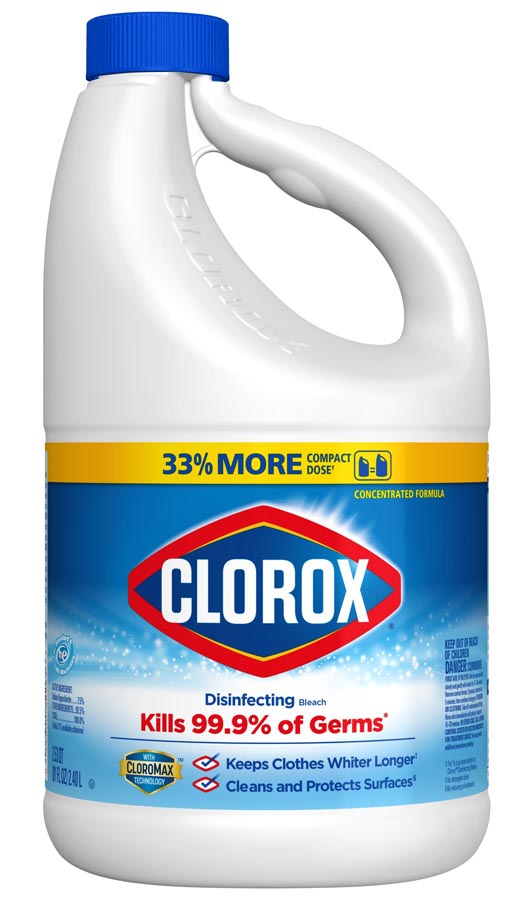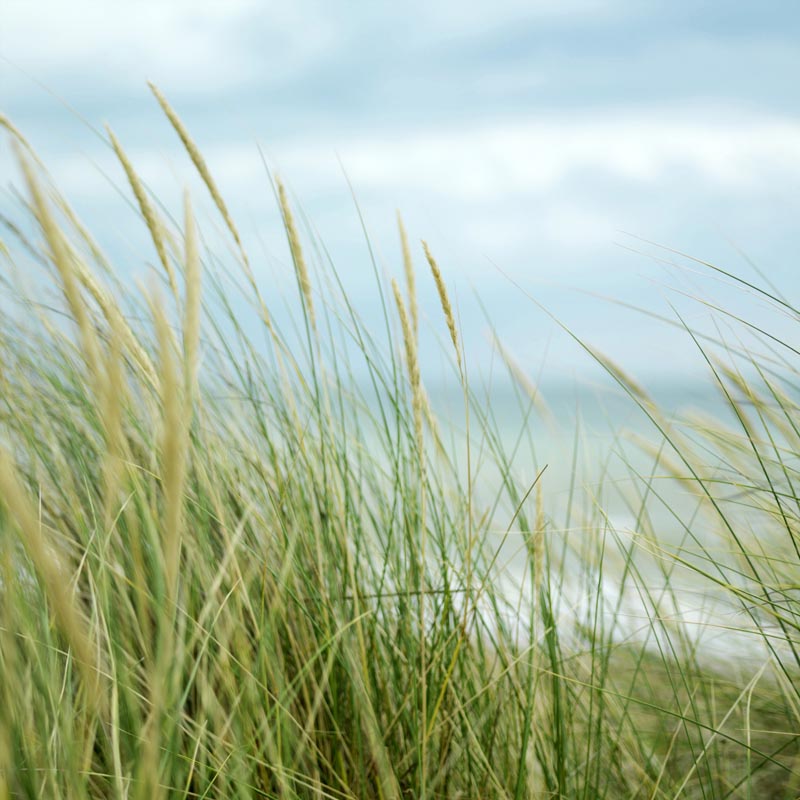
We all know that bleach kills SARS-CoV-2, the virus that causes COVID-19. But does bleach kill weeds, too? Read on to find out.
Does Bleach Kill Weeds?
Yes, bleach does kill weeds. In fact, bleach will kill all the plants it touches, so you need to be very careful if you are planning to use it to kill your weeds. Do not pour it into your flower beds or spray weeds in your lawn with bleach as it will kill surrounding plants and grass. Instead, put bleach inside a sprayer and spray it in areas where weeds are isolated, or poking through paving stones for example.
Uses of Bleach
The word bleach either means to whiten or to clean. It follows that the product bleach is a chemical that is used for cleaning or for removing color from a fabric.
But that’s not all. Bleach is also used in hair. There are actually so many uses for bleach.
Now
The most common form of bleach is the liquid one. It is a diluted solution of sodium hypochlorite.
Bleach has bactericidal properties. This means that it is capable of killing bacteria, which makes it really good for disinfecting and sterilizing things.
Remember when a certain world leader suggested possibly injecting disinfectant to kill SARS-CoV-2?
No, no, no
Don’t ever think about taking bleach as prevention or treatment of COVID-19. That’s not how it works.
But bleach really does kill the virus. You can absolutely use diluted bleach to disinfect surfaces at home or wherever you go.

Think about this
Precisely because bleach is so potent that it kills bacteria and viruses that you shouldn’t ever ingest it.
Bleach has some poisonous properties. When you really think about it, bleach is corrosive. If it can corrode metal, imagine what it can do to you.
Plus
If you have ever bleached your hair before, you will realize that it burns.
If you’re wondering why bleach in pools doesn’t hurt, that’s because a very small amount is actually used. This means that solution has been heavily diluted.
Besides, for pools, high-grade chlorine is usually preferred. Chlorine is actually
an active agent that is present in many household bleaches.
Other uses
One of the most popular uses of bleach is in laundry. People use bleach to preserve the whiteness of white fabrics.
In other cases, bleach is used to prevent mildew in many products.
You know what else?
Bleach is also effective in killing weeds.
There you go! There goes the answer to the question: Does bleach kill weeds?
How does bleach actually work?
Bleach works on colored organic compounds and fights them to make them colorless. Some bleaches are oxidizing agents where they remove electrons from other molecules while some work as reducing agents that will donate electrons.
Okay, now that we have an idea on how it works, let’s talk more about how bleach could kill weeds.
How Bleach Kills Weeds
We already know that bleach kills weeds. It kills grass, too, actually.
Bleach is an effective herbicide. It’s quite potent, which is why you should not use bleach in your flower beds.

The process:
- Put bleach inside a sprayer for convenience.
- Spray generous amounts of bleach on the weeds.
- Leave the weeds for at least three days.
- Pull out the dead weeds.
Can you use a diluted solution?
You can! But you might have to repeat the process of spraying the weeds two to three more times before you become successful in killing the weeds.
Look
Bleach will kill the weeds permanently. This makes it perfect to use for those weeds in pavements and patio pavers.
Removing weeds by hand is taxing. Plus, the weeds will just come back. So, if you have to remove them by hand, kill the weeds with bleach first.
How about the weeds in your lawn?
Okay, please don’t spray them with bleach. The chemical product could kill your lawn grass.
It’s the same with your plants. Don’t spray them with bleach or you would kill them too.
That’s also why you should use a sprayer. If you could find one with a smaller spout, that would be ideal because you want to make sure you only aim at the weeds.
Fact:
The bleach kills weeds permanently by lowering the pH level of the soil. It becomes so low that no plants would ever grow on it anymore.
That’s also why you should never use it on your lawn grass or flower beds.
Here’s more fact:
In small amounts, chlorine may not be harmful to plants. However, in large quantities, chlorine could burn and kill the plants.
Bleach, as already mentioned, contains chlorine. It actually has a high concentration of chlorine, which effectively results in highly acidic pH when sprayed on soil.
Here’s the deal
A well-concentrated chlorine bleach has a pH of 11. Do you know what the ideal garden soil pH level is? It’s between 6 and 7.
So, you can just imagine what happens after you spray the soil with bleach: chlorine toxicity.
When it comes to the plants, the sodium content of the bleach will overwork the plant’s system, which leads to death.
Next
When you spray bleach on the weeds (or plants for that matter), the leaves will eventually turn brown and will look burnt.
This is why you also leave the weeds for a couple of days in order for the bleach to really penetrate the structure.
The effect of high pH levels:
When the soil has unusually high pH levels, it would be impenetrable to essential nutrients like calcium, iron, and magnesium. These are important in the growth of plants.
That’s how the soil becomes unsuitable for plants.
By the way
Bleach is not just an effective weed killer, it’s also great at preventing weeds.
You know how weeds would be peeking out of your pavers or in some parts of the driveway? Well, you could prevent that by spraying on these areas with your bleach.

Tips When Spraying Bleach on Weeds
We mentioned that bleach, especially when undiluted, is going to be harmful to people.
Here are important tips when you are bleaching weeds to death:
Wear protective gear
You don’t want bleach to touch your skin, so you have to wear protective gloves. You also don’t want the wind to carry some bleach aerosols to your eyes or face, so wear goggles as well.
A mask would be a good idea, too. You don’t want to accidentally ingest some of the bleach droplets.
Kill weeds when it’s not windy
Even if you already have the protective gear, it would still be better if you spray bleach on a day when it’s not windy.
Your hands, eyes, and even mouth may be protected, but what about the other parts of the body? It’s always better to just be safe.
Make sure there are no other people around
You don’t want to spray bleach when your children are around. It’s just better to be safe than sorry.
Oh, keep the pets out of the way as well. Actually, just spray when there is no one else but you. You just don’t want to accidentally hit other people or your pets with bleach droplets.
Dilute the bleach
Dilution will lessen the potency of the bleach–duh. But there are ways to ensure that the bleach is still effective when used as a weed killer.
Check out some of these alternatives to undiluted bleach:
a. Bleach & water
This is the most popular way of diluting bleach. Just mix a cup of water and a cup of bleach and shake them well in the spray bottle.
b. Bleach & dishwashing liquid
You can mix a cup of bleach, a cup of water, a tablespoon or two of dishwashing liquid. Pour the solution into a garden spray and mis it well again. Now, the mixture is ready to kill some weeds.
c. Bleach & vinegar
A cup of bleach and a cup of vinegar mixed together is going to make a potent weed killer.

Summary
Does bleach kill weeds? Absolutely!
Bleach is actually a potent killer. It’s a non-selective type of herbicide, which means that it will kill all the plants that it touches. This is why you have to be careful with it. Spray only in areas where weeds are isolated. You can’t use bleach on lawns, flower beds, and the garden.
It would be good to spray weeds that are peeking from your pavers or your driveway. Some walkways also have weeds that are eyesores. Make sure you are protected when you are spraying bleach on weeds because it could be harmful to humans.
Useful Resources
- Gardening Expert Shares How to Remove Weeds from Paving But Warns “It Will Kill Plants” – Express
- The Secret to a Low-Maintenance Flower Garden? Beautiful Weeds – Wall Street Journal
- Weeds Aren’t All Bad But Do Need to Be Controlled – Associated Press


Why didn’t you just answer with details in regards to the bleach can kill weeds? Instead you twist a president wording into a dumb analysis. The President comment was an insinuation comment that people with intelligence understood.
The fact this post has provoked you to write this comment is a huge compliment, thank you.